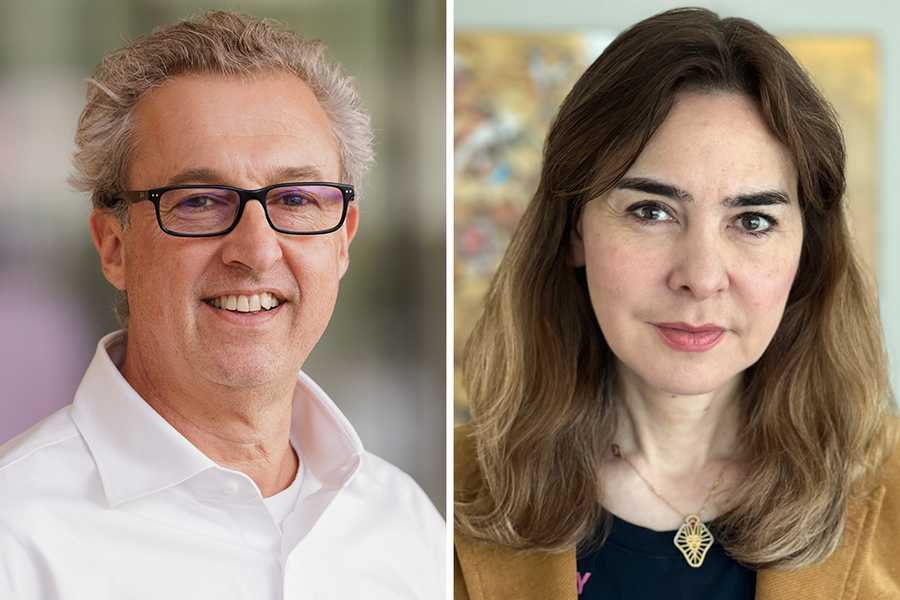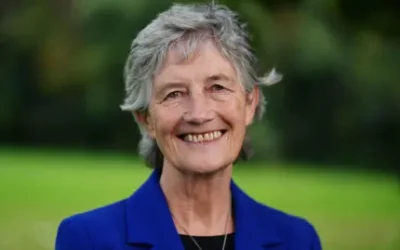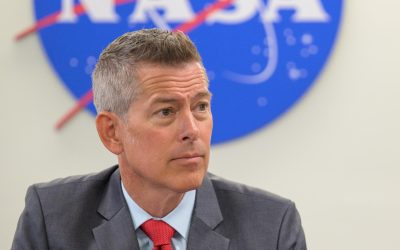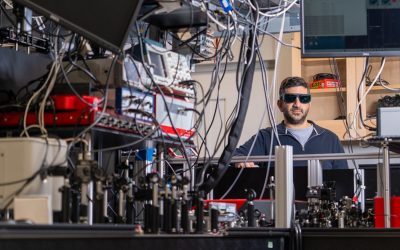During its annual meeting on October 20, the National Academy of Medicine (NAM) announced the election of 100 new members. This esteemed group includes Massachusetts Institute of Technology (MIT) faculty members Dina Katabi and Facundo Batista, alongside three additional alumni from the renowned institution.
Induction into the National Academy of Medicine (NAM) represents one of the most esteemed accolades within the fields of health and medicine. This distinguished honor is bestowed upon individuals recognized for their outstanding professional achievements and profound commitment to service.
Dr. Facundo Batista holds a prominent position in the field of immunology, serving as both the associate and scientific director of the Ragon Institute of MGH, MIT, and Harvard. He also holds the distinction of being the first Phillip T. and Susan M. Ragon Professor in the MIT Department of Biology.
Batista’s groundbreaking contributions to understanding the immune system have been recognized by the National Academy of Medicine. He was specifically honored for his work “unraveling the biology of antibody-producing B cells to better understand how our body’s immune systems responds to infectious disease.” Building on this foundational research, his more recent efforts have significantly advanced preclinical vaccine and therapeutic development for critical global health challenges, including HIV, malaria, and influenza.
Dr. Batista, a highly accomplished scientist, began his academic journey with a PhD from the International School of Advanced Studies. In 2002, he established his independent research laboratory at what was then the London Research Institute, now part of the Francis Crick Institute, while simultaneously serving as a professor at Imperial College London.
A significant shift in his research focus occurred in 2016 when Batista transitioned to the Ragon Institute. There, he initiated a novel research program, strategically leveraging his deep expertise in B cells and antibody responses. His work is primarily dedicated to advancing vaccine development and preclinical vaccinology, specifically targeting critical global health challenges such as SARS-CoV-2 and HIV.
Batista’s distinguished contributions to science have garnered widespread recognition. He is an elected fellow or member of several esteemed organizations, including the U.K. Academy of Medical Sciences, the American Academy of Microbiology, the Academia de Ciencias de América Latina, and the European Molecular Biology Organization. Furthermore, he holds the prominent position of Chief Editor for The EMBO Journal.
Dina Katabi (SM ’99, PhD ’03), the esteemed Thuan (1990) and Nicole Pham Professor in MIT’s Department of Electrical Engineering and Computer Science, is a leading figure in advanced technological research. Her extensive work spans critical domains including digital health, wireless sensing, mobile computing, machine learning, and computer vision.
Katabi’s impactful contributions include the creation of efficient communication protocols for the internet, the development of advanced contactless biosensors, and innovative AI models adept at interpreting physiological signals. Her pioneering efforts have been formally recognized by the National Academy of Medicine (NAM). The NAM specifically lauded Katabi for her “pioneering digital health technology,” which facilitates non-invasive, off-body remote health monitoring through the integration of AI and wireless signals. Additionally, she was recognized for developing crucial digital biomarkers for Parkinson’s disease detection and progression. This groundbreaking technology has been successfully translated to provide objective and sensitive metrics for evaluating disease trajectories and treatment efficacy in clinical trials, marking a significant advancement in medical diagnostics and care.
Dina Katabi, a distinguished figure in computer science, directs the MIT Center for Wireless Networks and Mobile Computing. She is also an integral member of the Computer Science and Artificial Intelligence Laboratory (CSAIL), where she leads the cutting-edge Networks at MIT Research Group.
Academically, Katabi completed her bachelor’s degree at the University of Damascus before earning her MS and PhD degrees in computer science from MIT. Her exceptional contributions have garnered numerous accolades, including a MacArthur Fellowship. She holds membership in prestigious organizations such as the American Academy of Arts and Sciences, the National Academy of Sciences, and the National Academy of Engineering, and is also a recipient of the esteemed ACM Computing Prize.
Here are a few options, maintaining a clear, journalistic tone:
**Option 1 (Concise & Direct):**
“Further distinguished graduates from MIT have also been elected to the National Academy of Medicine’s 2025 cohort. The individuals joining this prestigious body are:”
**Option 2 (Slightly More Engaging):**
“Expanding the roster of MIT-affiliated luminaries, additional alumni have secured election to the National Academy of Medicine’s 2025 class. The newly inducted members include:”
**Option 3 (Emphasizing the honor):**
“Adding to the Institute’s distinguished representation, a new group of MIT alumni has been formally welcomed into the National Academy of Medicine for its 2025 induction. These honorees are:”
Established in 1970 by the National Academy of Sciences as the Institute of Medicine, the National Academy of Medicine today tackles crucial issues in health, science, medicine, and related policy. Its mission also extends to galvanizing positive action across a wide range of sectors.
National Academy of Medicine (NAM) President Victor J. Dzau has voiced profound honor in welcoming a distinguished cohort of health and medicine leaders and researchers into the institution. Dzau underscored the new members’ proven excellence across critical domains, including confronting public health challenges, spearheading major discoveries, enhancing health care delivery, advancing health policy, and advocating for health equity. He emphasized that their collective expertise would significantly fortify NAM’s capacity to tackle the most pressing health imperatives of our time.







